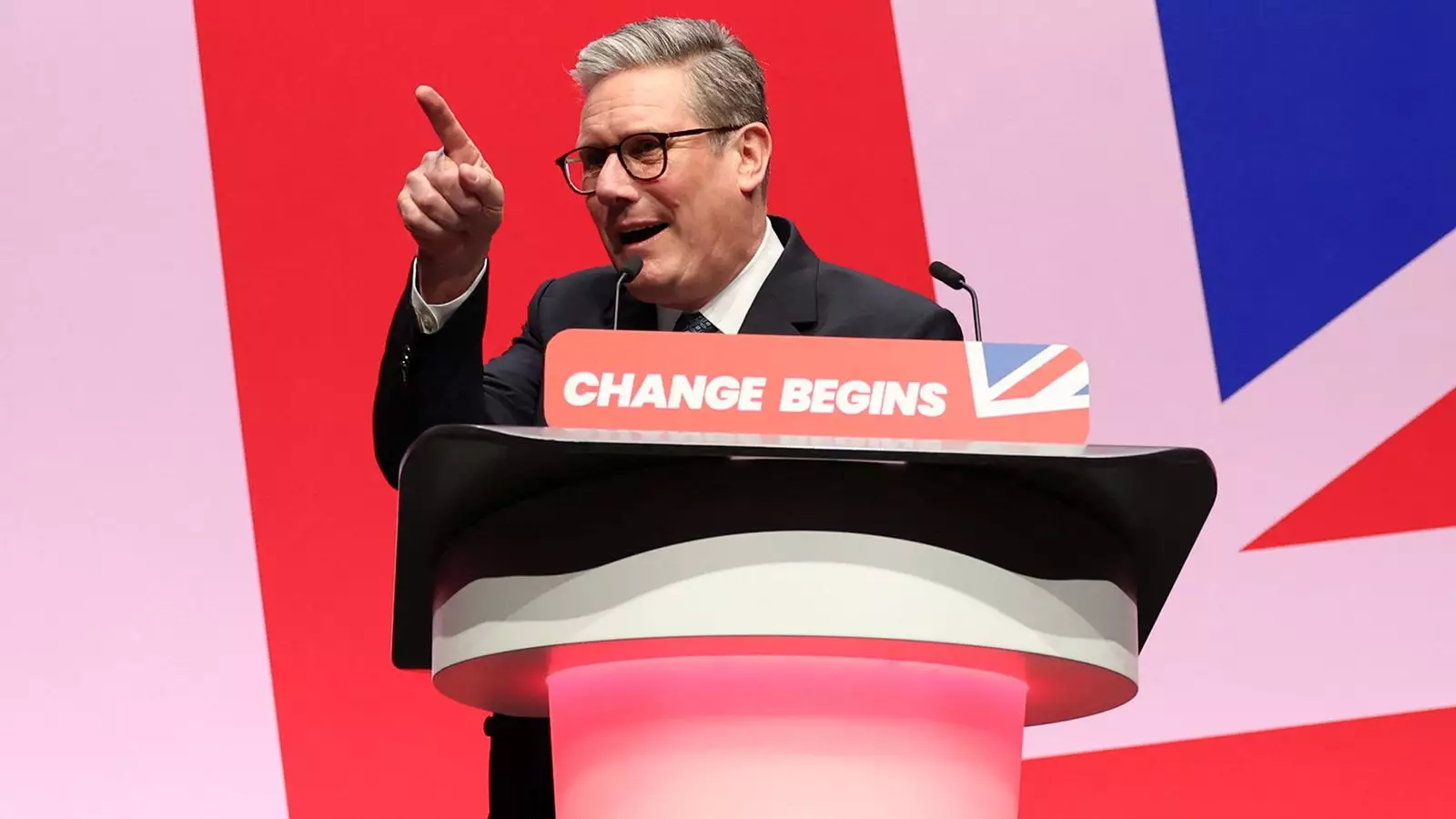In a grim turn of events, child poverty is projected to increase under a prospective Labour government, marking a historic first for the party. The notion that a government aiming for social equity could inadvertently push more of its youngest citizens into hardship not only begs the question of priorities but raises alarm bells about the party’s current direction. This undeniable reality is underscored by a joint statement calling for immediate reforms from left-leaning factions, including the former Labour leader Jeremy Corbyn and other cross-party MPs.
At the crux of their argument lies a straightforward yet revolutionary concept: implement a wealth tax targeting individuals with assets exceeding £10 million. The logic is simple: raise funds to “rebuild our schools and hospitals,” and to shift the focus from welfare spending cuts to a more holistic approach to fiscal policy that prioritizes people over militaristic endeavors. If Labour stands to lose its foundational values, it does so at a time when Reform UK is stunningly gaining traction in the political landscape.
The Chilling Choices of Government Spending
Recent economic decisions have sparked outrage among influential Labour figures, presenting a complex landscape of choices that ultimately favor military expenditure over vulnerable populations. The chancellor’s spring statement revealed an increase of £2.2 billion in defense spending—a figure that starkly contrasts with deepened cuts to welfare and public services. This demonstrates not only a troublesome allocation of resources but a fundamental misunderstanding of societal needs.
“This isn’t about scarcity; it’s about priorities,” asserts the statement from Corbyn and his allies. The emphasis on essential services, especially in challenging economic times, should not wane. Yet, the current trajectory could herald disastrous outcomes: with estimates indicating that by 2030, another 250,000 citizens—50,000 of whom will be children—could find themselves in relative poverty. The arithmetic of austerity paints a harsh picture, and it’s one that Labour must confront if it wishes to retain its credibility as a party of the people.
Shifting Ideologies and the Rise of Reform UK
Labour’s apparent drift towards the center, coupled with the party’s struggles against Reform UK, suggests a significant political shift that could have dire consequences. The troubling trend of adopting rhetoric aligned with far-right ideologies on topics such as migration and minority rights only serves to normalize scapegoating. While Labour tries to appeal to a broader base, this strategy could backfire by alienating the very constituents who once found solace in its progressive promises.
Corbyn’s letter warns that parroted rhetoric legitimizes and endorses harmful narratives. As the political climate becomes increasingly volatile, Labour’s failure to carve out a distinctly progressive path could enable Reform UK to make notable advances in local and national governance. The suggestion that the Labour Party might implicitly endorse policies contrary to its core values is not merely political folly; it’s a potential catalyst for deepening societal divides.
Calls for a New Economic Framework
As Labour grapples with internal dissent and external pressures, many are advocating for a robust economic framework that challenges the status quo. The edicts to nationalize vital services like water and energy, alongside rent controls, form a foundation that resonates with a populace weary of economic inequality. Progressive taxation on the wealthy and corporations should not be seen as punitive; they embody a strategic reallocation of resources for the common good.
What is most striking is that about three-quarters of the British public back tax hikes on the wealthiest individuals rather than seeing cuts to essential services. The demand for fairness is palpable, and if Labour fails to embody this aspiration, it risks losing its moral compass. Rachel Reeves faces the daunting task of balancing fiscal responsibility while also adhering to the party’s tenets of social justice.
A Political Makeup Shift
The tension within Labour is palpable, with several MPs expressing their dissatisfaction over the recent cuts, yet the party’s leadership has managed to stave off a full-blown rebellion—at least for the moment. Such strife signifies an internal conflict, illustrating a party at a crossroads. The measures taken now will shape both the immediate future of Labour and its long-term legacy.
If Labour is to be a harbinger of a fairer society, it must act decisively and listen to the calls for a new economic structure. Simply adhering to fiscal constraints while neglecting the impoverished populace exposes a profound failure of leadership. Only time will tell if Labour can reconcile the urgent need for progressive policy reform with the political will to execute them effectively.


Leave a Reply